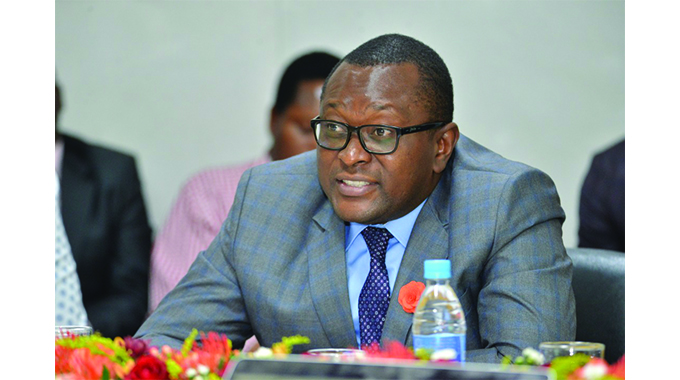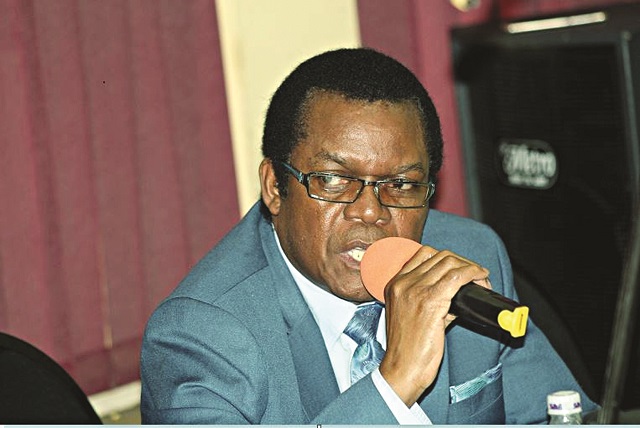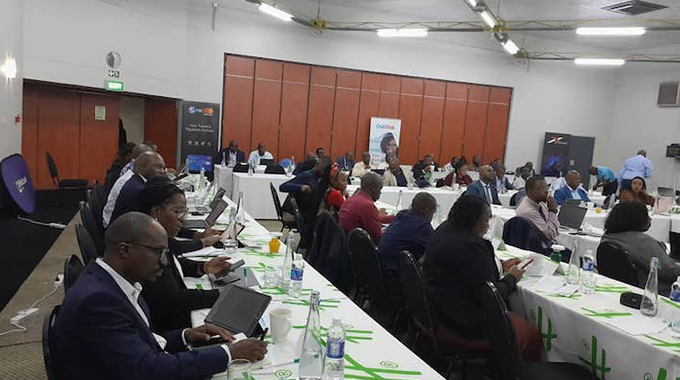Government in bid to bridge gap between rural, urban schools

Sikhulekelani Moyo, [email protected]
GOVERNMENT has pledged to enhance connectivity across the country, especially in rural areas in its quest to improve internet access and bridge the gap between rural and urban communities, which will promote access to e-learning and e-commerce.
The Minister of Information Communication Technology (ICT), Postal and Courier Service Dr Jenfan Muswere said this on Wednesday during the official handover of computer laboratories to 13 schools in Tsholotsho North and Tsholotsho South in Matabeleland North.
He said the establishment of computer laboratories in rural schools is in line with President Mnangagwa’s philosophy of not leaving anyone or any place behind.
The Minister also said the move is set to bridge the gap between rural and urban schools and align rural education to that of the urban and globally.
In his remarks at Tshithatshawa Adventist Secondary School in Tsholotsho South, Dr Muswere said the commissioning of 13 Zimbabwe ICT Master
Plan computer laboratories is a testimony to the Government’s commitment to transform the entire education sector as the Government seeks to ensure that each and every learner and every Zimbabwean citizen has got the requisite digital skills to be able to accelerate economic growth.
“As we were coming to Tsholotsho North and South, we realised there is a challenge in connectivity, there are other areas that still do not have connectivity and we want to assure you that through the Universal Services Fund, we are going to commit as per the President’s directive to ensure that there is ubiquitous connectivity across the country,” said Dr Muswere.
The Minister directed the Postal and Telecommunications Regulatory Authority of Zimbabwe (Potraz) director general Dr Gift Machengete to immediately start utilising the Universal Services Fund to be able to construct base stations in all provinces and utilise the Infrastructure Sharing Policy.

Dr Gift Machengete
The establishment of the computer laboratories is part of the Smart Zimbabwe 2030 Master Plan, which is an ICT strategy that guides the industry on the specific innovations they should exploit in the digital future.
The plan provides an all-inclusive, focused, and forward-thinking guideline that further identifies how the country can develop, deploy, and manage ICTs across all sectors.
To this aim, it provides smart solutions in Government, cities, agriculture, education, transportation, health, tourism, and mining, among others.
Dr Muswere went on to say ICT software and infrastructure alone are not enough in the thrust to build a digital economy.
He said Zimbabwe cannot achieve a digital economy without investing in significant financial and human capital resources that will spearhead innovation in ICTs.
“We need a vibrant and dedicated skills force to challenge and remain relevant in an ever-changing global society through maximum exploitation of ICTs.
“The exploitation of opportunities that are inherent in disruptive technologies such as artificial intelligence (AI), robotics, block chain, drones, internet of things, and big data shall spur the country towards an upper-middle income economy,” said Dr Muswere.
Dr Machengete said the regulatory authority together with the ministry funded three towers in Matabeleland North province out of 24 towers in the country set up by the Universal Service Fund.
“On school connectivity, 46 have already benefitted in this province and connected school and community 540 laptops have been distributed to sixty schools and under the e-learning programme 11 487 laptops have been distributed to 52 schools,” he said.
Tsholotsho North Member of Parliament (MP) Musa Ncube applauded the Government’s gesture to bridge the gap between rural and urban schools.
“On behalf of the constituency and on my behalf, I would like to thank President Mnangagwa for giving us laptops and establishing our computer laboratories,” said MP Ncube.
Schools that received the computer labs include Tshabanda High and Primary Schools, Chefunye Primary School, Tshitatshawa, and Dikili Secondary Schools. — @SikhulekelaniM1











Comments